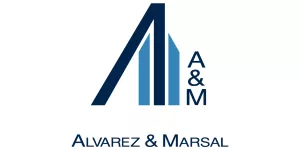We would like to remind businesses with branches in their organizational structure and presence in the Netherlands (either the head office or a branch) that they potentially need to report new transactions in their Dutch VAT returns as of 2024. This could lead to additional VAT costs or savings.
WHAT IS THE CURRENT POSITION IN THE NETHERLANDS?
Historically transactions between a head office and its branch were considered outside the scope of Dutch VAT when one of them was part of a Dutch VAT group. This position was also confirmed by the Dutch Supreme court in 2002. In essence, this is a similar position to the one currently applicable in the UK (i.e the entity in its entirety is included in the VAT group). In 2014 the ECJ ruled in the Skandia case that the VAT group in Sweden including a branch of Skandia US should be considered as a separate taxable person. Therefore transactions between the US head office and its branch constitute VAT taxable activities. After this ruling there was some discussion in the Netherlands on whether this would have impact on the 2002 Dutch Supreme court ruling, but the market parties and the Dutch tax authorities took the view that the VAT grouping model in Sweden is different to the one in the Netherlands. In December 2020 this was also confirmed in a new policy note on the VAT aspects of fixed establishment in the Netherlands, meaning that the Skandia case would not have an impact on the Netherlands. In our experience, the Netherlands was one of the few EU member states that took this position.
WHAT WILL CHANGE AS OF 2024?
In 2021 the ECJ ruled in the Danske Bank case that territorial limits apply to VAT grouping. As such, a VAT group can only consist of parties established in the member state of the VAT group. This would mean that the Dutch interpretation of extending the VAT grouping to head-offices / branches abroad is no longer possible. Following the ruling in Danske Bank, revised fixed establishment policy note was published in the summer of 2022. In this policy note the Dutch state secretary of Finance announced that the Netherlands will consider cross-border transactions between a head office and its branches as inside the scope when at least one of them is included in a VAT group in a member state of the European Union (i.e. a UK VAT grouping is ignored).
Considering that the change is only included in a policy note and the legislation on which the Dutch Supreme court based its 2002 ruling is not changed might be a reason for market parties to file appeals against the payment of additional VAT and start court procedures. This potentially delays the VAT implications for the respective market parties, but the expectation is that most market parties will take the Danske bank impact into account as of 2024.
WHAT IS THE IMPACT FOR BUSINESSES WITH A LIMITED RIGHT TO DEDUCT VAT ON COSTS?
Following the publication of the policy note in July 2022 we have seen that in particular businesses with a limited right to deduct the VAT on costs (e.g. financial institutions) acted quickly to make a first financial impact analysis. The results were that generally speaking the implementation of the new rules resulted in a significant additional VAT costs for businesses with a non-Dutch head office. Therefore these businesses started looking into options to mitigate the additional VAT cost.
WHAT IS THE IMPACT FOR OTHER BUSINESSES?
Although, the main focus on this development seems at businesses within the financial services industry also businesses in other industries need to make an impact analysis and determine what is required in for example their administration/systems to fulfill the new requirements in relation to transactions that become reportable / inside the scope of VAT as of 2024.
NEXT STEPS
Affected businesses should review their own positions in the light of the revised policy to analyze the financial impact and what changes in systems/invoicing are required to correctly reflect the changes in the Dutch VAT return.
The content of this article is intended to provide a general guide to the subject matter. Specialist advice should be sought about your specific circumstances.

